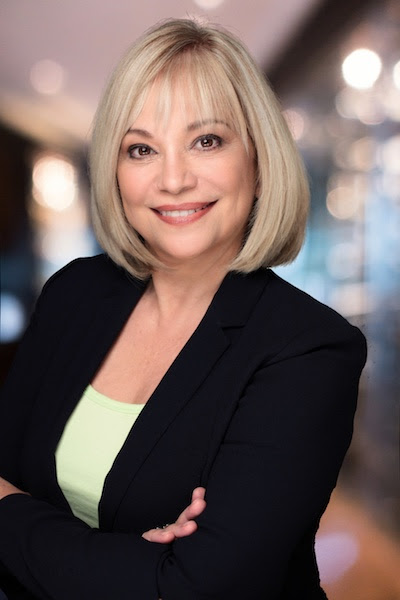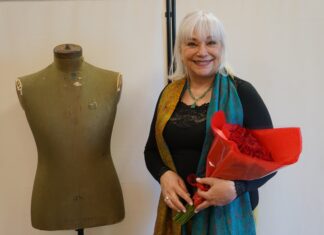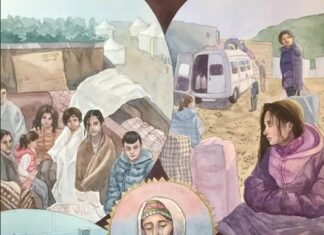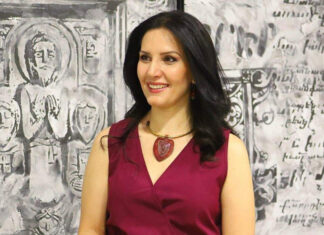NEW YORK — In the past decade, actress, writer, director and producer Nora Armani has added another couple of titles to herself: founder and artistic director of the non-profit Socially Relevant Film Festival (SRFF).
She founded the festival in January 2013 “as a reaction to the proliferation of violence on screens and in life. Especially in the United States, films and TV are very violent, both in content and in form. Loud intrusive music, special sound and visual effects that aggressively assault our sense in an attempt to grab attention, especially to cover up the fact that there is clear paucity of content, exasperated me, and I wanted to offer an alternative form of entertainment that offered human interest stories and focused on social issues rather than special effects. This is on the general level, on a more personal level, I wanted to commemorate, in a meaningful way, my dear cousin Vanya Exerjian and her father, my dear uncle Jack Exerjian, who lost their lives in a violent hate crime on March 16, 2004 in Cairo, Egypt. The festival has an award in my cousin’s name that is given to a film across all categories, that deals with empowering women and girls.”
The 2020 edition of the festival will open on March 16 at the Elinor Bunin Munroe Film Centre at the Lincoln Centre with Sophie Deraspe’s “Antigone,” Canada’s entry for Best International Film at the Academy Awards 2020. Screenings continue all week through March 22 at venues including Cinema Village, Hunter College, The Baha’i Centre, The Lebanese American University and The Centre for Remembering and Sharing.
For a list of the films, times and locations, visit www.ratedsrfilms.org.
Out with the Old (Way of Thinking)
This year six films 10 documentaries and 26 shorts will be shown.












